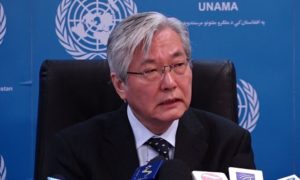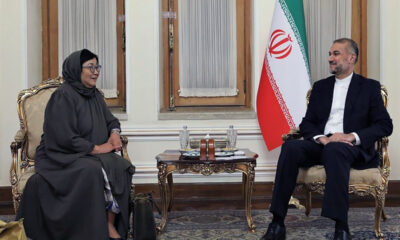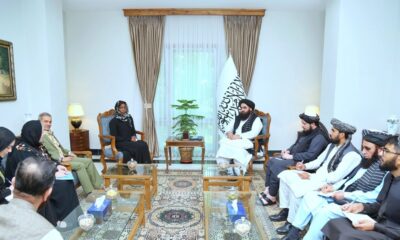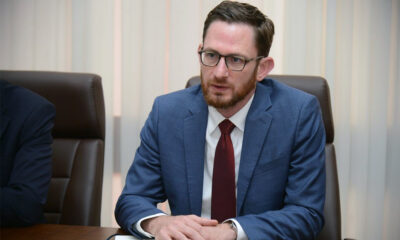Latest News
Corruption Is Greatest Challenge in Afghanistan after Violent Conflict: UN Envoy

The UN envoy in Kabul says corruption is Afghanistan’s next greatest challenge after violent conflict in the war-torn country.
Speaking at a press conference in Kabul, following the release of UNAMA’s second anti-corruption report, titled ‘Afghanistan’s Fight against Corruption: From Strategies to Implementation,’ Tadamichi Yamamoto, the UN representative for Afghanistan said: “Allow me to recognize up front how corruption affects the Afghan people.”
“If you are an Afghan citizen trying to make ends meet, apply for a license, open a business, or just get your child into a decent school, you know more than any of our legal experts about corruption. I think the word in Dari is “fessad” – if I pronounced it correctly. It is, if I might suggest, a very unwelcome and unfortunate aspect of your everyday life,” Yamamoto said who is also head of UNAMA.
“Apart from violent conflict, Afghanistan’s next greatest challenge, according to opinion polls, including that of the Asia Foundation, is corruption. And yet, Afghanistan’s fight against corruption, under the current Government, is moving ahead with a new vigour,” the UN envoy said.
The UNAMA report analyses the contributions made by civil society and independent institutions, along with all three branches of government – the executive, the legislative and the judiciary.
The report also identifies the need to accelerate justice reforms in the interest of improving the lives of all Afghan people. It describes Afghanistan’s new anti-corruption strategy as a strong tool, but notes that a short-term strategy will have limited impact.
“It has become clear that all Afghan institutions, along with all segments of society, must now engage in fighting corruption to rebuild integrity, accountability and transparency in the country, with a long-term agenda,” the envoy said.
The report makes several recommendations, recognizing that the government’s ongoing anti-corruption efforts have yet to impact the lives of most Afghans, and concludes that, notwithstanding the many legal and policy reforms that have been undertaken, corruption continues to be a substantial obstacle to Afghanistan’s long-term peace and prosperity.
“While Afghanistan has made significant and notable progress in fighting corruption, new reform strategies and laws have yet to be fully applied to bring tangible benefits to Afghans suffering from the impact of corruption,” said the UN envoy. “We are confident our recommendations will be well received and will help Afghanistan in advancing its anti-corruption reform agenda.”

Latest News
Nakamura canal project completed in Nangarhar

The construction of a water canal, planned by the late Japanese doctor and aid worker Tetsu Nakamura, has been completed in Afghanistan’s eastern Nangarhar province.
Nakamura was from Japan, but had honorary citizenship of Afghanistan. He was killed in 2019.
He worked in Nangarhar for many years, focusing mainly on building water canals.
Nakamura was working hard to complete his projects, but these were suspended following his death.
Later, the projects were resumed with the help of the government of Japan.
During his time in Nangarhar, Nakamura built several health centers and carried out more than 1,600 irrigation projects, canal constructions and provision of clean water.
His greatest work was the construction of a 25-kilometer long canal from the Kunar river, which irrigates hundreds of acres of land.
He also built a recreation park, dug wells, and established agricultural research farms.
“Dr. Nakamura made 9 weirs in Kama, Shewa and Behsud districts. Thousands of acres of land are irrigated and millions of people benefit from it. All the projects planned by Nakamura have been completed,” said Ajmal Stankzai, the representative of the Nakamura Foundation.
“Nakamura would behave with a laborer like a laborer. He would take stones with us. He used to tell us that the people of every country serve their country and you should also serve the ruined Afghanistan,” said Deen Mohammad, a resident of Koz Kanar district of Nangarhar.
In Kama district, the work of Nakamura projects is ongoing. One of the projects is the construction of a secon canal from the Kunar river.
“There was a huge water problem in Kama district. Fortunately, with Nakamura’s cooperation, many lands were irrigated,” said Bashir Ahmad Kamawal, a resident of Kama district of Nangarhar.
After Nakamura’s death, now an NGO called PMS is following in his footsteps and is working to build canals and dams.
Recently, the construction of a canal in Kot district of Nangarhar was completed and inaugurated. The canal is 5 kilometers long.
“Many projects are planned and our ministry has taken care of them… We thank them for feeling the pain of Afghans and helping our country,” said Abdul Latif Mansour, Acting Minister of Energy and Water.
Tetsu Nakamura was shot and killed by unknown men in 2019 when he was going to work from Jalalabad city. It is not yet known who was behind the assassination.
Latest News
Deminer killed in landmine explosion in Uruzgan
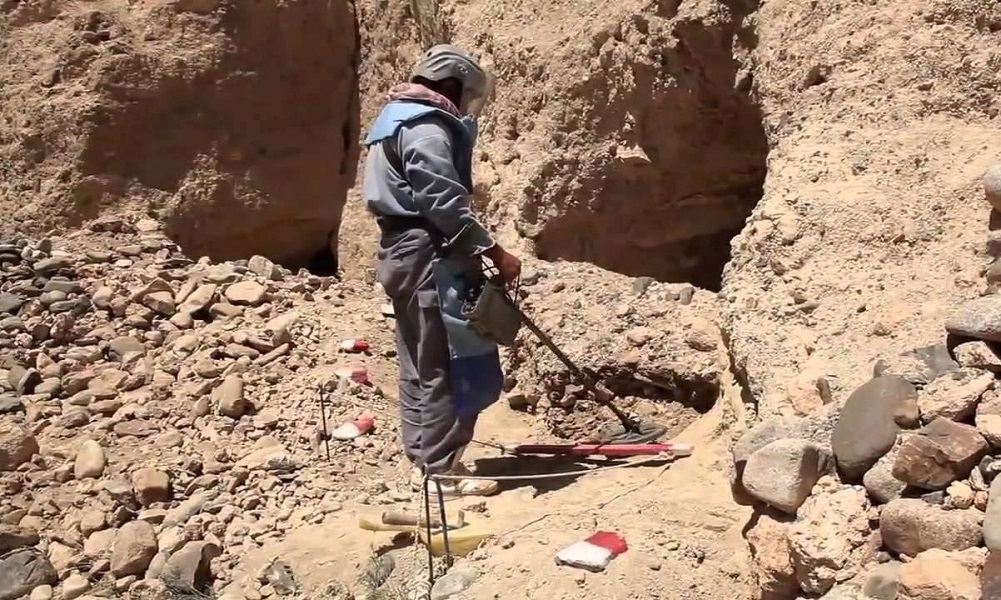
A deminer died in a landmine explosion in Afghanistan’s southern Uruzgan province on Tuesday, police said.
The incident happened around 10:00 a.m. in Khurma area of provincial capital Trink Kot, said Hazrat Bilal Uruzgani, the provincial police spokesman.
Another deminer was injured in the incident, he said
Uruzgani said that the incident happened during an operation to clear the area from mines.
Latest News
Acting health minister visits flood-stricken villages in Baghlan
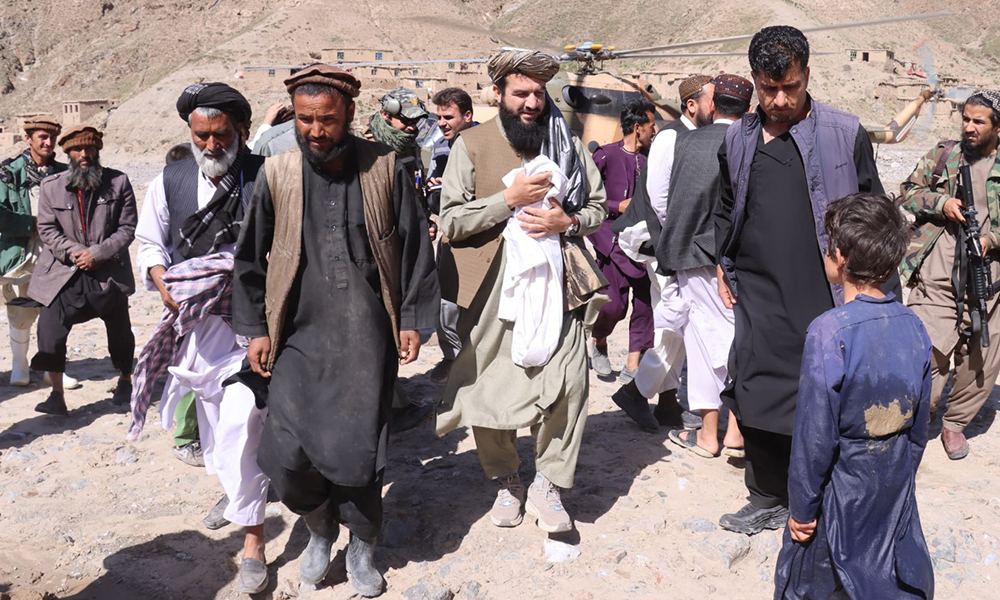
Afghanistan’s acting minister of public health Dr Qalandar Ebad, along with other officials, visited a number of flood-hit villages in Baghlan province on Tuesday.
The officials assessed damage in the villages of Sai Hazara and Gharo in the Guzargah district.
According to a statement issued by the ministry, Ebad inspected “vulnerable areas affected by recent floods and, expressing sympathy with the local people, promised that the leadership of the Ministry of Public Health will spare no effort to provide health services to those in need.”
Ebad also expressed gratitude for the efforts of healthcare workers and their commitment to helping people in need.
He directed officials to make every effort “to improve the health status of patients affected by recent floods in the villages of Sai Hazara and Gharo, Baghlan province”.
Based on official figures, more than 300 people have died as a result of floods in Baghlan province and over 1,600 others have been injured.
-

 Science & Technology5 days ago
Science & Technology5 days agoTikTok to label AI-generated content from OpenAI and elsewhere
-

 World5 days ago
World5 days agoIsrael strikes eastern Rafah as ceasefire talks end with no deal
-

 Regional5 days ago
Regional5 days agoTurkey says it killed 17 Kurdish militants in northern Iraq, Syria
-
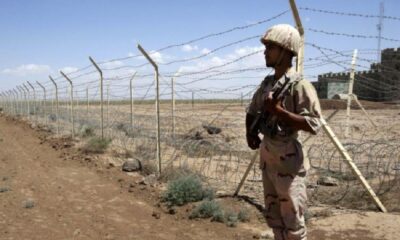
 Latest News5 days ago
Latest News5 days agoIran says work underway to block eastern border with Afghanistan
-
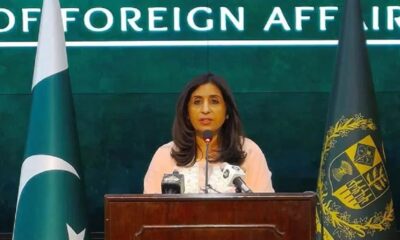
 Latest News5 days ago
Latest News5 days agoPakistan rejects IEA’s allegations of Daesh using its territory against Afghanistan
-
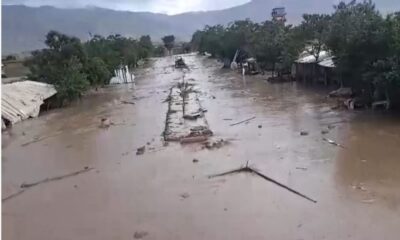
 Latest News5 days ago
Latest News5 days agoFloods leave 50 dead in Baghlan
-
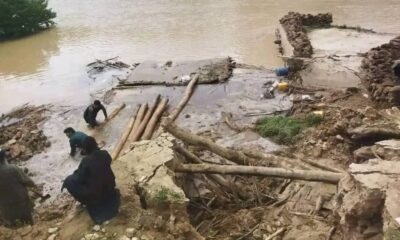
 Latest News4 days ago
Latest News4 days agoHundreds killed and injured in floods in four Afghan provinces
-

 World4 days ago
World4 days agoKuwait’s Emir dissolves parliament, suspends some constitution articles

